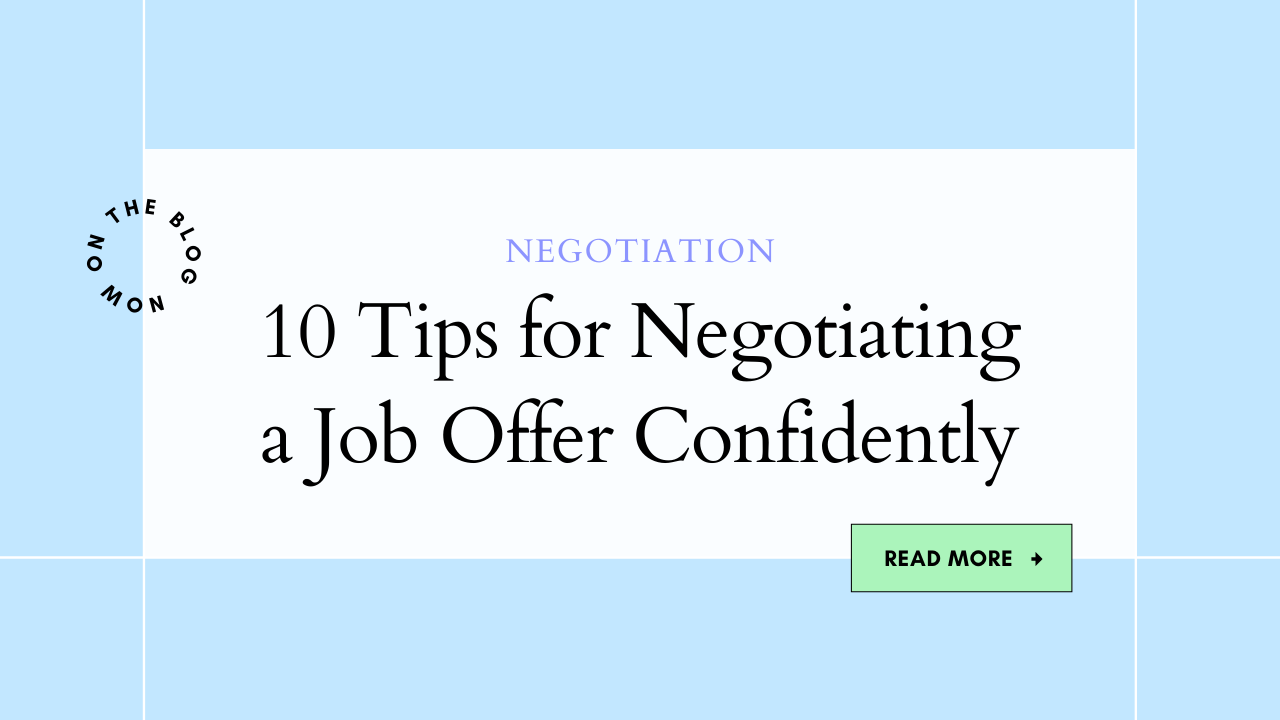10 Tips for Negotiating a Job Offer Confidently

So…where do we start?
Let me ask you a question…what exactly is it about negotiation that makes us sweat?
Maybe it’s the fact that as a society, talking about money makes us feel uncomfortable. So asking for more money can be straight up paralyzing. Especially in a field like healthcare where we aren’t supposed to think about money because we “just want to help people” even though we paid a boatload of money to get to this point.
Well, there is no shaming in saying “I have a nurturing heart, I have the gift of compassion, I want to help people…and I want to be paid well to do it”
If that’s you, keep reading because today I’m sharing my top TEN tips for negotiating a job offer:
-
Have a strategy so that you go into the job hunt with actual numbers and know what your “market value” is. Check out THIS instagram post on how to create this strategy and what numbers are important to know
-
Avoid putting a desired salary range on an application. If you must put something so you can submit it, try “0, open, negotiable, -” don’t worry about your application getting automatically tossed - plenty of people do this.
-
Avoid disclosing your current salary. If they ask, you can say something like actually my previous employer considers that confidential information. Based on the scope of work you’ve described for this position and my expected roles & responsibilities, what is the current range being offered?
-
Wait until you’ve received an offer in writing before you negotiate and do not negotiate in person or over the phone. Let them know you’re excited about the opportunity and happy they recognize you as a potential great addition to the team. Say you’ll need time to review the WRITTEN offer and ask when you can expect to receive that offer.
-
Avoid putting out the number first. If they ask what salary you’re expected, turn the question back on them: based on the scope of work you’ve described for this position and my expected roles & responsibilities, what is the current range being offered?
-
If they don’t budget and you have to put out the number first, give a number, not a range because if you give a range, they’re going to likely choose the lower end so go in with a concrete number to work with
-
Ask for 5-10k annually (or $3-$5 per hour) more than you actually want so you can land in the middle. You want to shoot high because they’re going to continue to counter.
-
Go on several job interviews and use other job offers you already have to see if they can match what company X is offering. Be sure to include why you prefer their company and what the benefits you see in working there.
-
Have in mind what benefits you want to negotiate if salary is non-negotiable or if they say that’s as high as they can go. Explore benefits such as: PTO, 401k matching, CEU reimbursement, mileage reimbursement, student loan repayment assistance, work schedule etc.
-
Be prepared to walk away. Don’t feel pressured into accepting a lowball offer. You may have to extend your job search and go longer without getting paid but trust me, it’s worth the wait to find a position where you’ll feel like you’re being paid your worth
-
BONUS TIP: Even if the offer is more than you were excepting, you can and should still negotiate. Never settle for the first offer. It’s good practice. If you don’t plan on accepting the job, you can also still negotiate so that you can use that offer and have another company potentially match it. Be sure to let them know that you are very grateful for the opportunity, but you have decided to pursue another offer more in line with what you were looking for. Don’t burn those bridges!
Honestly, when it comes to negotiation, it’s kind of threefold: mindset + strategy + confidence.
You have to be of the mindset that it is absolutely OKAY to ask for more money and it’s not something to feel guilty about. You’ve gotta create a strategy so that you’re negotiating based on research, facts & figures - not emotion. You need to be confident in your abilities to recognize your worth & have the research to back you up.
If you’ve read this far, know that you CAN do it. You can negotiate, yes even as a new graduate, because when you provide a service, the company makes money. At the end of the day, healthcare is a business and if you’re helping a business to make a profit, you need to make sure you’re getting the appropriate cut.
This is exactly why the first step in my “building wealth without a biz” method focuses on teaching you how to maximize your earning potential.
The reason I teach you to create a negotiation strategy is to make negotiation feel less scary and to be prepared with REAL numbers to know if you’re being offered what you’re worth based on research, facts & figures.
From there it’s just a matter of presenting that research, including your relevant clinical experience that will be valuable (and profitable!) to the company, and using the right verbiage during *written* negotiations.
Add in a dash of confidence and a sprinkle of “I know my worth” and friend, you’re on your way to loving your job AND loving the pay…because friend, you deserve to love both.
For more Negotiation resources please check out the following posts from my Instagram:
